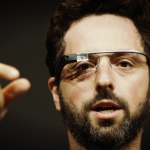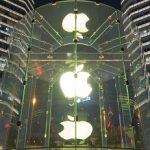Meme of the year: Grumpy Cat

[portfolio_slideshow id=120704]
Psy's Gangnam Style may be the most popular YouTube video of all time, with 1.05 billion views, but there are other measures of popularity that say much about other things. In the old days of comedy, being mocked by talk show hosts like Conan O`Brien is one example. But in the social era, where anyone can be a comedian and the hive mind collectively produces one, memes rule. One clearly stands above all others, at least during second half of 2012: Grumpy Cat.
An Apple Christmas Carol

Tim Cook smiled as he pulled up the blankets and shook his toes against the cool sheets. Christmas Eve had come and the last Apple Store closed. Preliminary sales were gangbusters. Wall Street analysts betrayed him with lowered share price targets and projections iPad and iPhone sales slowed. But he knew! Cook laughed and kicked his legs under the covers. The best fourth quarter for sure! Occasional giggles broke the silence until at last -- long last -- sleep became him.
But briefly, for rattling chains startled Apple's CEO from slumber. Chunk. Chunk. Chunk. The clanking grew louder and an ominous dragging sound with it. A frightening wail followed. Pain. Great pain! Then through the wall pushed out an apparition. Ghastly yellow eyes squinted behind a face sullen, sunken and seemingly familiar. Tattered black turtle neck and blue jeans -- the uniform worn by his predecessor and mentor. Realization pierced Cook, and he felt a burning hot fire in his solar plexus. Steve Jobs!
10 end-of-the-world classics for the Mayan apocalypse

We're not dead, at least not as I write. Dec. 21, 2012 is supposed to be the end of the world, based on ancient Mayan prophecies. If we do all die today, well, it was nice knowing you. Humans certainly are obsessed with apocalypse. Hell, it's biblical. Civilization's end, and how survivors cope, is quite the popular theme in literature and other artwork, including movies and television. I got to thinking: "Why not review some of the classics?"
So I've compiled a list of my favorites, from least to most, all but one from the twentieth century (the other circa 1898). Sorry, "The Walking Dead" fans. I also skip late-1990 movies like "Armageddon" and "Deep Impact". Some of the works are deliberately chosen for not being mainstream but worthy of the world-ending genre.
Red Hat acquires ManageIQ

Concurrent with third-quarter earning results late this afternoon, Red Hat announced plans to acquire ManageIQ, an enterprise cloud provider. The all-cash deal is for $104 million. Red Hat is uniquely positioned, opportunity and risk, for enterprise server consolidation and transition to private clouds -- for which virtualization is a linchpin technology. The Raleigh, N.C.-based company plans to expand its own capabilities by fitting ManageIQ's monitoring and management tools onto existing solutions.
Red Hat's acquisition rides the cusp of a trend. Last month, IDC forecast big cloud-related mergers for 2013 -- totaling $25 billion over 20 months. The analyst firm sees three converging trends vertically related. "The IT industry as a whole is moving toward the mobile/social/cloud/big data world of the 3rd Platform much more quickly than many realize: from 2013 through 2020, these technologies will drive around 90 percent of all the growth in the IT market," Frank Gens, IDC chief analyst, says. "Companies that are not putting 80 percent or more of their competitive energy into this new market will be trapped in the legacy portion of the market, growing even slower than global GDP.
Flipboard comes to Android tablets

I don't much like Flipboard, popular as the app/service may be. But if you do and have a 10-inch Android tablet, there's a new version. It is specifically designed for all screen sizes, although users of 7-inchers could easily get by with the phone app. Now they can expect more, and I admit Flipboard is even prettier on Nexus 7.
But the service isn't customizable enough for my tastes. Sure, you can add more channels, but Flipboard controls sources for the major ones. Your control comes from adding more personalized channels like Google News or your social networks. Also, I find apps like Feedly, or even Google Currents 2.0, to be more visually appealing. Hey, that's just my tastes; I'm not a member of the Flipboard fan club, big as it might be.
2013 will be the year of 4G

Here's another reason for me to gripe that Google Nexus 4 isn't LTE, despite colleague Mihaita Bamburic insisting it doesn't matter: Strategy analytics predicts that LTE smartphone shipments will reach 275 million units next year. That's triple the number shipped in 2012.
"It is clear that 2013 will be the year of 4G", Neil Mawston, the firm's executive director, says. Still, based on combined analyst forecasts, LTE would only account for about one-quarter of all smartphones shipped.
Instagram has a problem

Angry users say they will ditch Instagram over policy changes granting the service the rights to use their photos. Of course, what people say they will do in the heat of the moment isn't necessarily what they eventually do, especially when extra effort is required -- in this case, recovering images from the service. Still, among respondents to a BetaNews poll, the number planning to keep Instagram is statistically zero (5 votes). Forty percent will stop using or cancel the service. However, a much larger number, 60 percent, already aren't users.
The Instagram backlash is nothing but fierce, for terms like these: "Instagram does not claim ownership of any Content that you post on or through the Service. Instead you hereby grant to Instagram a non-exclusive, fully paid and royalty-free, transferable, sub-licensable, worldwide license to use the Content that you post on or through the Service". The photo-sharer later claimed misunderstanding and poor wording, but you tell me what's unclear here.
Santa writes the PC's obituary

I lost hope for Windows 8 last night, after visiting my local Best Buy store and seeing gads of cheap computers vying for customers' attention and losing it to tablets and smartphones. The prices are insanely low, which is more surprising because Microsoft has a new operating system that's supposed to generate demand and lead to market innovative touchscreen and convertible designs that offer real benefits to buyers and higher margins to manufacturers and retailers. Ba! Humbug! Gimme Grinch. There's no Santa coming to this island of misfit toys. There, have I mixed enough metaphors to make the point?
This morning, I looked at PC prices from other retailers and the shock is greater still. I'll look first at Best Buy, which has some terrific bundles, starting at $299.99, for Windows 8 Dell or HP laptop, case, mouse, USB stick and security software (with 12-month subscription). Is that too much for you to spend? Best Buy has a Toshiba model for $269.99 with AMD dual-core processor, 15.6-inch LED display, 2GB RAM, 320GB hard drive, DVD burner, WiFi and all the ports you'd expect. For $329.99, you can move up to Intel processor, 4GB RAM and 500GB with a Samsung Series 3 laptop. At my local store, boxes fill the main aisle adjacent to the tablets. Meanwhile, Best Buy tucks expensive Ultrabooks further back, in a smaller side-isle display area almost anyone could miss.
Mark Zuckerberg can take his billions to hell, I'm done with Facebook

I joined Facebook on Sept. 30, 2006 -- that's four days after opening to the public. The service promised so much, and I was excited by this compelling competitor to MySpace, which let customization run amok. But within short time, my interested declined; over the years I've come to loathe Facebook, which user interface is among the worst ever, as the site increasingly clutters with distracting elements. MySpace is now clean by comparison. Far worse: Privacy settings too often change, and what's different is often lost, even if temporarily, in the grotesque layout.
Overnight, Instagram, which Facebook now owns, announced radical rights policy changes starting in mid-January. The photo-sharing service grants itself a perpetual license to use and to sell your content. No permission required. That's one policy change too many for me. On December 9, I posted to Google+ my intentions to give up Facebook on the last day of the month. I thought more to empty the account of friends, information and content but not cancel -- for sentimental reason of having joined so much earlier than most everyone else. My intentions changed. I'm done with Facebook on December 31. I'd cancel today, but want intimates -- family and close friends -- to have forewarning.
Tell us what you think about Instagram's new 'screw you' policy

If you're planning to Instagram lots of photos this holiday, think again. They might be in next year's commercial marketing -- your embarrassing candid plastered on billboards everywhere -- and you have no real say about it. Big companies use the Digital Millennium Copyright Act of 1998 to keep you from sharing stuff. Instragram takes away such recourse for you, overnight announcing one of the biggest rights policy changes of the contextual cloud computing era. The photo-sharing site claims the right to sell your content, offering you absolutely no compensation for the privilege.
The change is snakey sneaky: "Instagram does not claim ownership of any Content that you post on or through the Service. Instead you hereby grant to Instagram a non-exclusive, fully paid and royalty-free, transferable, sub-licensable, worldwide license to use the Content that you post on or through the Service", but "Instagram Content is protected by copyright, trademark, patent, trade secret and other laws, and, as between you and Instagram, Instagram owns and retains all rights in the Instagram Content and the Service". You give up your rights to ownership simply by using the service, which gives you nothing.
Google Nexus 10 first-impressions review

A month has passed since I started using Nexus 10, Google's first 10.1-inch tablet, which Samsung manufactures. iPad is reason for the delay writing this review. I bought the first three generation models and sold each within two months. The appeal didn't last, in part because of the user interface's long-term limited utility. So Nexus 10 faced resistance before I opened the box and for another, compelling reason: I was (and still am) hugely satisfied with sibling Nexus 7, which form factor and feel in the hand hugely appeal. After a month of testing, just to make sure, I don't plan on selling the larger tablet; its immediate fate won't be that of iPad 1, 2 or 3.
I definitely recommend Nexus 10 to anyone considering a tablet this year in the $400-$500 range. Nexus 7 ($200-$300) is a better option for the budget conscious -- or even Kindle Fire HD ($300-$600). I don't recommend iPad 4 or mini. They cost too much ($329-$829) for the benefits, and iOS has fallen behind Google and Microsoft operating systems. My experience with Surface RT is limited, but the tablet makes a great first impression such that it's worth considering -- and easily over Apple's larger tablet.
Apple's perception problem is HUGE

For more than a decade I've quipped: "In business perception is everything". For some brands, this axiom is truer than for others. Apple leads the list, much to its determent. For more than a month now, I've read speculative stories from all quarters trying to figure out why the company's stock tailspins. Some people blame the fiscal cliff, others taxes. Meanwhile, the anti-Apple crowd delights in rumors iPhone sales are slowing and the mini cannibalizes iPad 4 sales. There's an aura of doom that I can only describe as the anti-reality distortion field.
Earlier today, Apple shares briefly dipped below $500, a low not seen since around Valentine's Day. Bloggers are beside themselves posting about this catastrophe -- or so they see it. I laugh, because they are a large part of the company's falling stock price problem. All these stories contribute to negative perceptions that feed the frenzy. That's one part of the answer to how someone nicked an artery and Apple bled about $200 per share, or 27 percent decline, from September's $705.07 record high. These bloggers were, and still are, detached from reality -- like analysts covering the company. Just two months ago, the Apple Fan Club gloated about projections of $1,000 a share. Now they run around like street people holding signs "The World Ends Dec. 21!" as shares slip and analyst cut back projections.
iPhone 5 first-weekend China sales top 2 million

Apple started selling its newest smartphone in the People's Republic of China on December 14. Late tonight, the company claims 2 million sales for Friday and the weekend. The announcement comes as rumors mount about slowing sales.
"Customer response to iPhone 5 in China has been incredible, setting a new record with the best first weekend sales ever in China", Tim Cook, Apple CEO, says. "China is a very important market for us", which is quite the understatement. During fiscal fourth quarter China revenue reached $5.7 billion, up 26 percent year over year. iPhone rose 38 percent, Macs 44 percent and iPad 45 percent. For the fiscal year, China generated $23.38 billion revenue, or 15 percent for all Apple. China accounted for more than three-quarters of Asia-Pacific revenue.
24 Google+ improvements are bigger than you think

If you're a heavy Google user, every day is like Christmas -- well, in 2012. Not a day goes by that the company doesn't release something new. Updates are relentless, with products in continual states of improvement. Today's touted 18 24 Google+ enhancements are examples. Editor's note: Hours after we posted, Google changed the number from 18 to 24. The approach is philosophical and corporate cultural and defies traditional software development cycles Apple, IBM, Microsoft, Oracle and others adopted long ago. The relentless releases is for stuff Google mostly gives away for free. Now why is that?
Years ago, I wrote several seething stories about perpetual Google betas (Gmail was 5 years, right?) and Microsoft somewhat mimicking the approach. (I can't find the stories this morning. If you can, please link in comments.) The search giant's work was never done, while competitors rolled major enhancements together made available all at once on long lead cycles (Hey, three years separate Windows 7 and 8 launches). Microsoft chooses the big blockbuster movie approach, which predicates a work largely done -- a story completely told. Google is the serialist, telling an ongoing story in a quick succession of releases. Which works better? You tell me.
Google Maps gives iPhone much needed direction

What Apple takes away, Google gives back. Early this morning, Google Maps arrived for iPhone, replacing the app removed by Apple with release of iOS 6. The company's homegrown product proved nothing short of disastrous, for the fruit-logo brand and customers using the app/service. Earlier this week, law enforcement in Australia warned against using Apple Maps, after motorists were misdirected and their lives put at risk.
Reviews rightly have been scathing, while iPhone users cried not to Apple but Google for direction. Now that it's here, irony comes along. Android's developer may do more for current iOS than its maker. A surprising number of people held back iOS 6 upgrades or iPhone 5 purchases, not wanting to give up Google Maps or take on Apple's replacement.
Joe's Bio
Joe Wilcox is BetaNews executive editor. His motto: Change the rules. Joe is a former CNET News staff writer, JupiterResearch senior analyst, and Ziff Davis Enterprise Microsoft Watch editor.
Ethics Statement© 1998-2025 BetaNews, Inc. All Rights Reserved. Privacy Policy - Cookie Policy.
